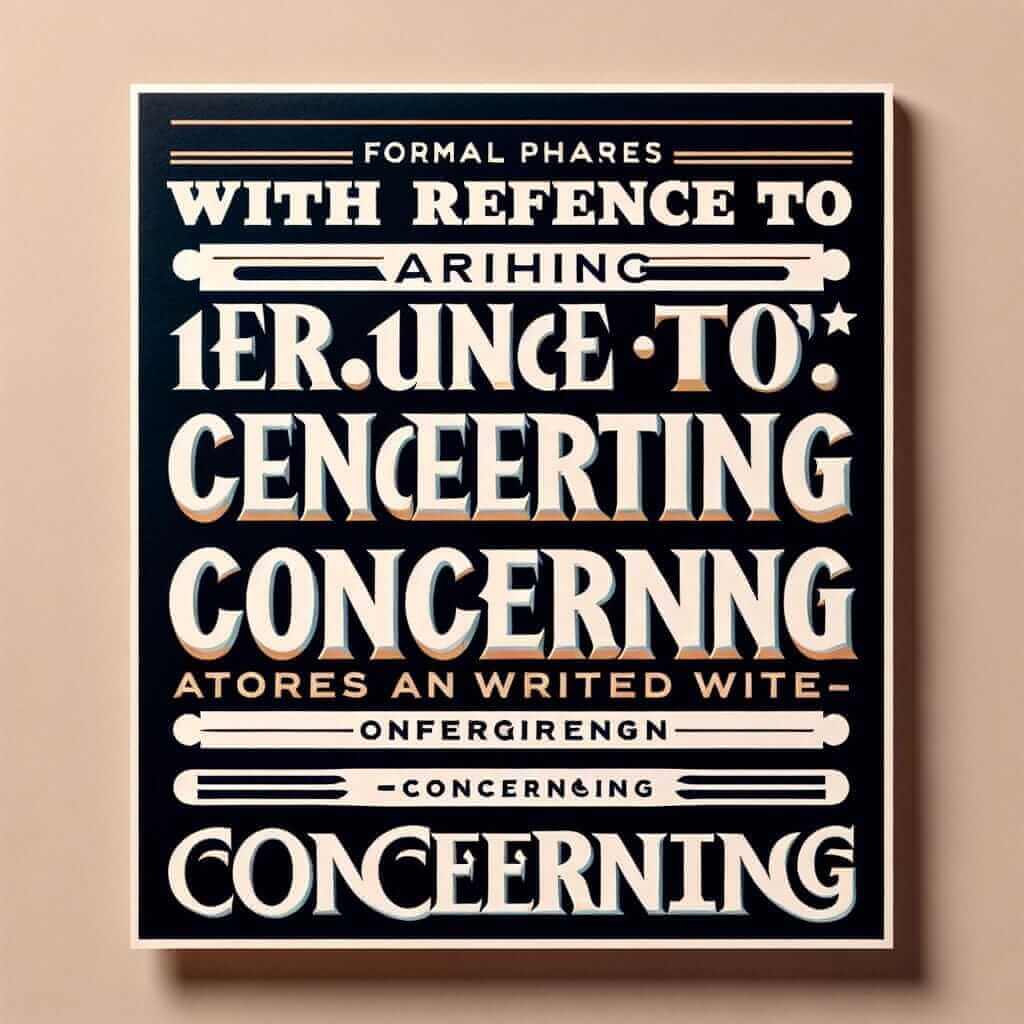“With reference to” is a formal phrase commonly used in academic writing and formal letters to introduce the topic that will be discussed. While it’s not a structure that guarantees a band 7 or 8 in IELTS writing, understanding its proper use and variations can add sophistication to your writing and demonstrate a wider range of vocabulary.
Here are some examples of how “with reference to” can be used in different parts of the IELTS exam:
- Essay Introduction: “With reference to the argument that globalization has a negative impact on local cultures, this essay will present a balanced analysis of both its advantages and disadvantages.” (This sentence clearly introduces the essay’s topic and stance.)
- Report Introduction: “This report will provide an overview of the company’s recent marketing campaign, with reference to its impact on sales and brand awareness.” (Here, the phrase signals the specific aspects of the campaign that the report will focus on.)
- Letter of Complaint: “I am writing with reference to order number #12345, which I placed on your website on 1st July 2023.” (In this context, the phrase directly points to the subject of the complaint.)
Let’s delve into how to use “with reference to” effectively and explore its alternatives to enhance your IELTS writing skills.
Understanding “With Reference To” in IELTS Writing
“With reference to” signifies that what follows is directly related to the subject matter previously mentioned. It acts as a bridge, smoothly transitioning the reader from a general topic to a specific aspect. Using this phrase showcases your ability to structure information logically and maintain a formal tone in your writing, both crucial for achieving a high band score.
Structure and Application in IELTS Writing
“With reference to” + [noun phrase]
- Noun phrase: This can be a single word, a noun phrase, or a gerund phrase.
- Example: “With reference to your recent inquiry (noun phrase), we are pleased to inform you…”
Application:
- Essays: Use it in the introduction to pinpoint the specific aspect of the essay question you’ll address.
- Reports: Introduce specific data sets, trends, or findings that support your report’s objective.
- Formal Letters: Directly reference the issue, order number, or previous correspondence you are addressing.

Mastering Alternatives for Enhanced Variety
While “with reference to” is useful, employing synonyms can demonstrate a wider vocabulary range and avoid repetition:
- Regarding: “Regarding the environmental impact of tourism…”
- Concerning: “Concerning the recent developments in artificial intelligence…”
- In relation to: “In relation to the study’s findings on sleep deprivation…”
- Pertaining to: “Pertaining to your question about the company’s future plans…”
- As for/As to: “As for the potential drawbacks of this approach…”
Example in an IELTS Essay (Problem/Solution):
“With reference to the escalating issue of traffic congestion in urban areas, this essay will analyze the contributing factors and propose viable solutions.”
Improved version using an alternative:
“Concerning the escalating issue of traffic congestion in urban areas, this essay will analyze the contributing factors and propose viable solutions.”
Common Pitfalls to Avoid
- Overuse: Don’t use “with reference to” excessively. Use it strategically for emphasis and clarity.
- Informal Context: Avoid using this phrase in informal letters or speaking sections of the IELTS, as it may sound too formal.
- Incorrect Usage: Ensure the noun phrase following “with reference to” is grammatically consistent with the rest of the sentence.
Conclusion
“With reference to” is a valuable phrase to add to your IELTS writing toolkit. By understanding its function, mastering its structure, and exploring synonyms, you can present your ideas more cohesively and demonstrate a stronger command of formal English. Remember to practice incorporating this phrase and its alternatives into your writing to improve your fluency and accuracy.